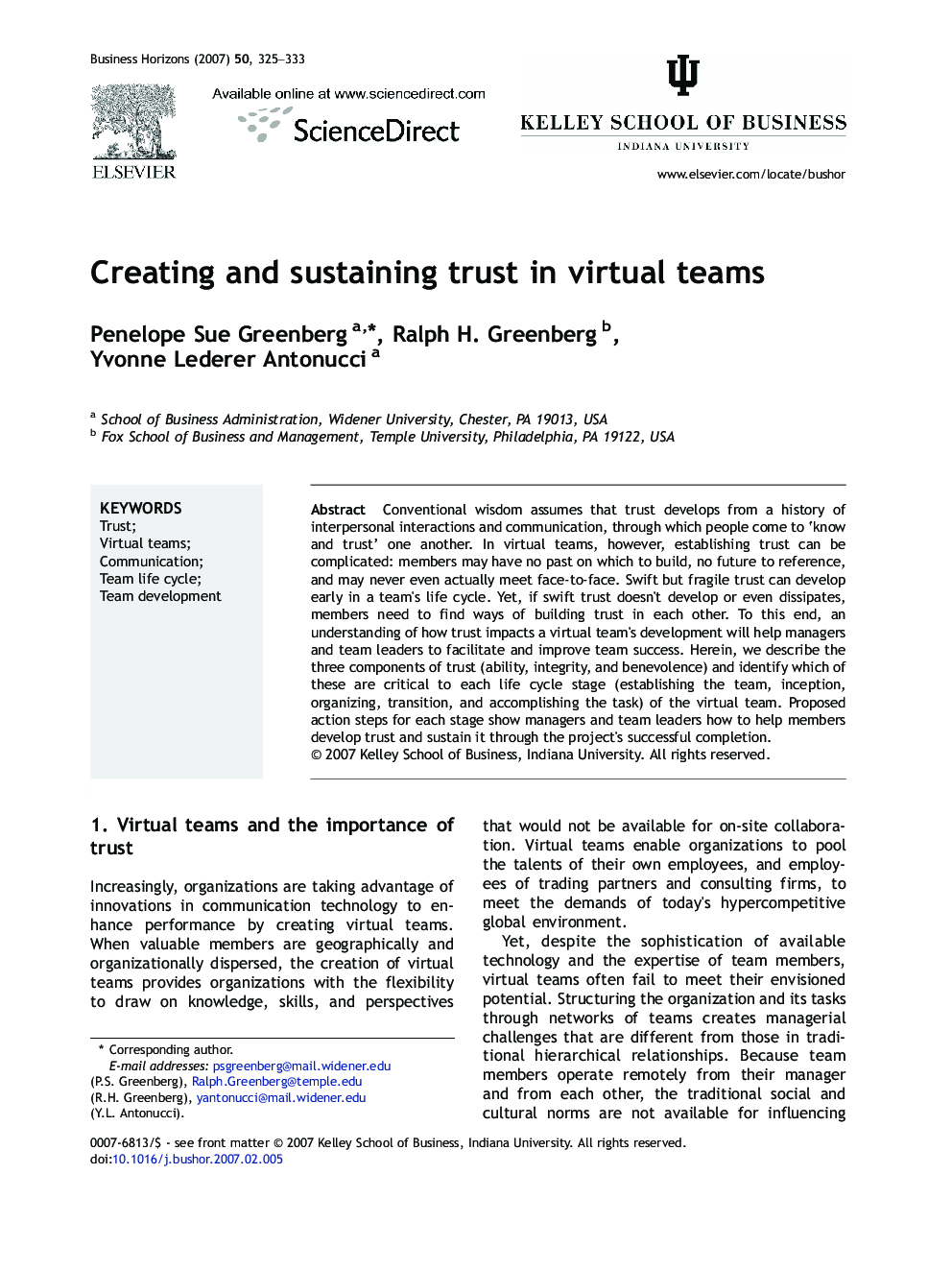| Article ID | Journal | Published Year | Pages | File Type |
|---|---|---|---|---|
| 1014582 | Business Horizons | 2007 | 9 Pages |
Conventional wisdom assumes that trust develops from a history of interpersonal interactions and communication, through which people come to ‘know and trust’ one another. In virtual teams, however, establishing trust can be complicated: members may have no past on which to build, no future to reference, and may never even actually meet face-to-face. Swift but fragile trust can develop early in a team's life cycle. Yet, if swift trust doesn't develop or even dissipates, members need to find ways of building trust in each other. To this end, an understanding of how trust impacts a virtual team's development will help managers and team leaders to facilitate and improve team success. Herein, we describe the three components of trust (ability, integrity, and benevolence) and identify which of these are critical to each life cycle stage (establishing the team, inception, organizing, transition, and accomplishing the task) of the virtual team. Proposed action steps for each stage show managers and team leaders how to help members develop trust and sustain it through the project's successful completion.
